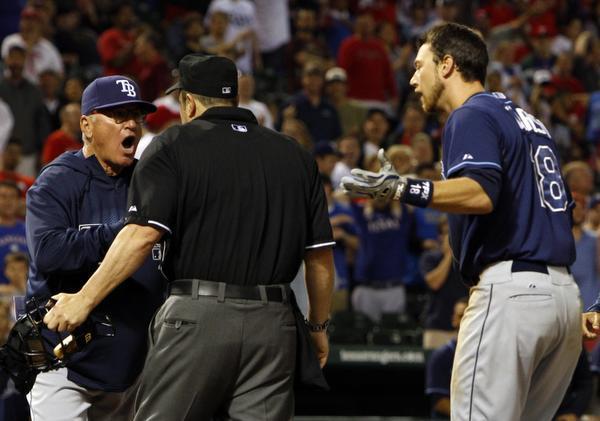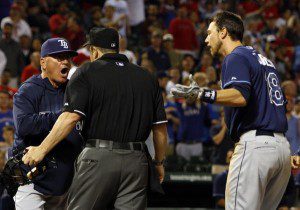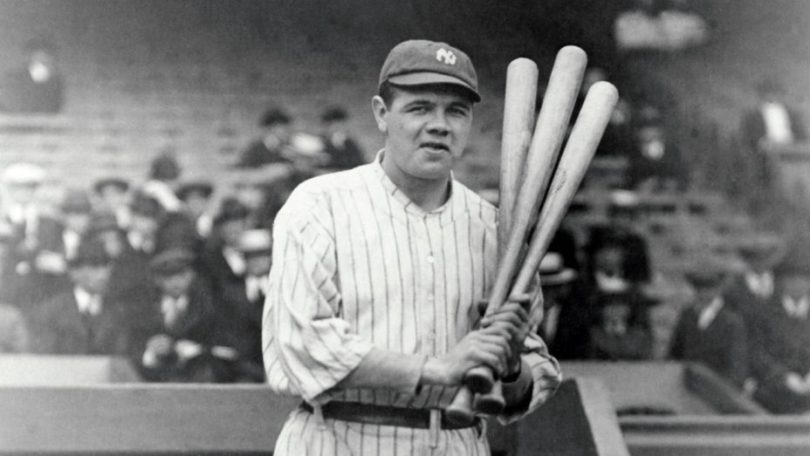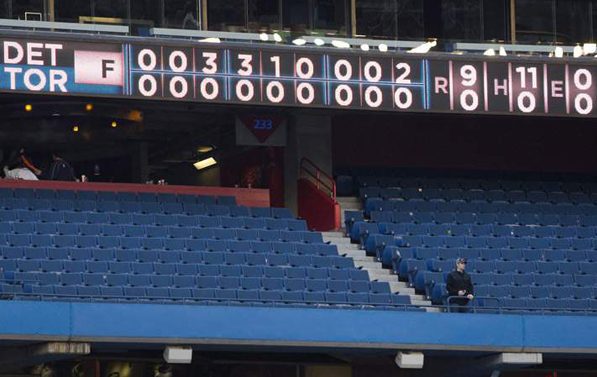

Monday night, Major League Baseball produced a quintessentially bad, logical-conclusion bad, worst-case scenario bad, game-ending call. With two outs in the top of the ninth inning, the Tampa Bay Rays had scratched their way back to within a run. They had a man on base, and Ben Zobrist had worked a full count against Texas Rangers closer Joe Nathan. Nathan threw a pitch that tailed low and away — an obvious ball four — and Zobrist began to set his bat down and trot to first base. But alas.
Umpire Marty Foster called Zobrist out, and later admitted that ”had I had a chance to do it again, I wouldn’t call that pitch a strike.” Joe Nathan himself, walking toward his catcher as the teams were preparing to leave the field (the resulting save was his 300th, and it’s a shame that a great closer’s historic moment occurred so dubiously), said “wow.” The controversy raged for all of the ensuing day, at a higher pitch than usual, because of both the call’s situational timing and its sheer ridiculousness.
The thing is, while Monday night’s call was a rare combination of situational impact and “ump needs glasses” absurdity, it was far from the first such instance. Don Denkinger’s infamous blown call changed the course of the 1985 World Series. More recently, the call that negated Armando Galarraga‘s perfect game continues to haunt umpire Jim Joyce. And in this year’s World Baseball Classic, notoriously erratic umpire Angel Hernandez made one of the most stupefyingly bad third strike calls you’ll ever see. Jeffrey Maier has his own Wikipedia page because he reached a foot over the fence to take a ball away from Tony Tarasco, resulting in a game-altering World Series home run. Last but not least, there’s the time Tim Welke called Jerry Hairston out at first base, in what was immediately and widely called the “worst call ever.” The question this begs is how many more of these kinds of incidents do we have to deal with before we do something to evolve the game?
The argument is often presented that the games will be made longer. To which I would reply, have you seen how long the infamous rants of Earl Weaver, Tommy Lasorda and the like generally take? Sometimes three to five minutes, and sometimes upwards of 10 minutes.
Then there’s the oft-discussed “human element.” Baseball, the argument goes, is a game played by fallible creatures; more than most other sports, it can be described as a game of failure. Historically good batters are successful less than a third of the time, and the game can be both baffling and humbling. But baseball also has rules, and when they are properly applied, it makes the game better. When the strike zone is consistently and fairly called, and when fair balls are called fair and safe runners are called safe, it allows people to succeed or fail under the auspices of their talent, decisions or a lucky or unlucky bounce — instead of the erratic strike zone of Angel Hernandez or the loosely held belief that there’s a difference between an ordinary strike zone and a “rookie strike zone.”
Let’s momentarily touch on the consideration that Major League Baseball umpires might resist the implementation of a challenge system. Oh, wait, let’s not, because they should welcome it. Don Denkinger, the aforementioned man behind one of the most notorious blown calls in World Series history, supports it. In fact, it would potentially make life easier for umps, because in the event they were challenged correctly, they could just reverse the call instead of catching several minutes or innings (or years) of flak for one head-scratching call. The ones who don’t support it, well, there are lots of contentious authoritarians among major-league umpires, and maybe they just shouldn’t be umpires anymore.
At this point, tennis and football have limited challenge systems, whereby a player is allowed the latitude to challenge a call they believe was made in error. The number of challenges can be limited to a handful per game, to prevent abuse of the system. Major League Baseball can even limit the types of calls that are reviewable, though I think the scope should be fairly broad. This would not only not significantly slow down games, but it might actually speed up games by eliminating the meltdowns that ensue from baffling calls … it might also, you know, make sure the strike zone is properly called. Imagine that.





